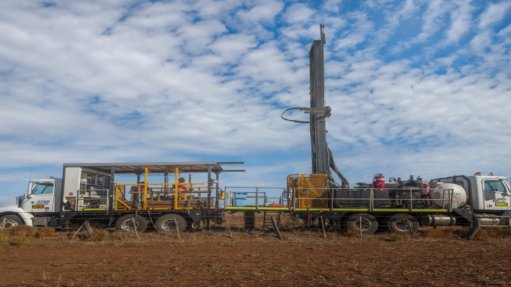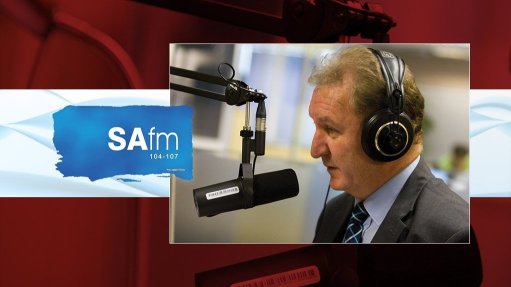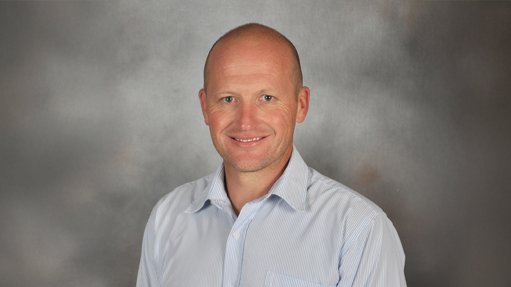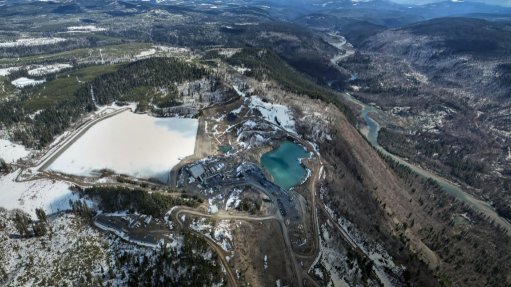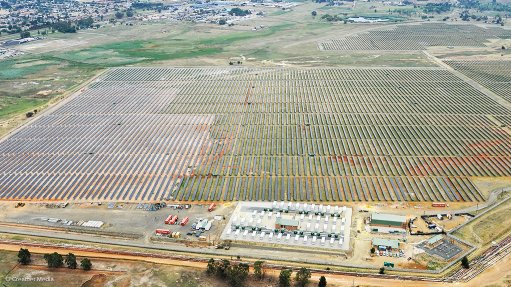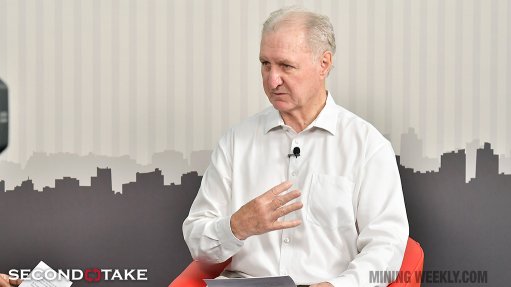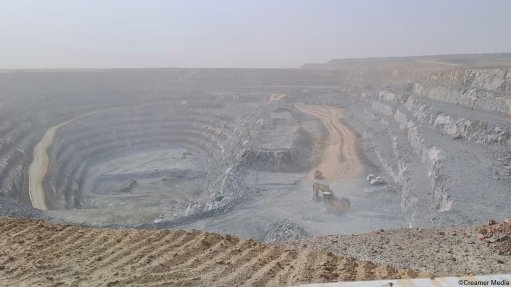Not a cent available to implement the Defence Review, Wakeford warns
The South African defence sector needs to bring home to the country the importance of defence for the technological, innovational and economic development of the country. So affirmed Armscor CEO Kevin Wakeford in his address to the recent fourth annual Aerospace, Maritime and Defence Conference, in Pretoria. Armscor is the Department of Defence’s acquisitions, disposals and research and development agency.
“We are confronted with a fiscal crunch: a R5-billion reduction in the Medium Term Expenditure Framework – a budget that should actually grow,” he highlighted. Growth is needed to fulfil the requirements of the Parliament-approved Defence Review. “Truth be told, there is not a cent available to implement the Defence Review.”
He pointed out that the role of the defence sector in stimulating innovation was not acknowledged in South Africa. Part of the blame for this had to be taken by the defence sector itself, which had to do more to inform the nation of its economic and developmental importance. “The defence industry must be prioritised. If it is not prioritised, our future is bleak.”
Currently, many South African defence companies are surviving by exporting: their main markets are abroad. But, Wakeford noted, this was an abnormal situation. In most countries, the primary markets for local defence industries were their domestic markets, with international markets being secondary. “I often ask myself: How on earth has our defence industry survived? How has it grown that international market?”
Complicating matters, however, are failures within some local enterprises. “Certain members of the industry are not delivering on their milestones, and we can’t pay you if you don’t meet your milestones,” he stressed. This had the paradoxical result that, in an era of serious cuts in the defence budget, Armscor was unable to fully spend its annual acquisition budgets. “Something is wrong. Are foreign customers being prioritised? Is it a capacity issue? A cash-flow issue?” Companies that fail to meet milestones are penalised, but he observed that this did not help the readiness of the South African National Defence Force.
Further, he stated he was aware that some companies were in financial difficulties. He made it clear he did not know their names, but he was aware that some were struggling and near insolvency. He urged them to open talks with other enterprises to ensure their skills, capabilities and technologies were not lost as a result of bankruptcy and liquidation.
Another issue was the increasingly ageing profile of the skilled staff in the sector. This meant that transformation had twin priorities: increasing the numbers of black, coloured and Indian skilled personnel (as well as owners and managers) in defence, and increasing the number of young people, in general, in the industry. The sector had to bring in new blood. He observed that a lot of the innovation in the local defence industry during the 1980s came from young people. “We have embraced transformation . . . [but] you transform at a cost,” he said. “You invest in the future, but it is a short-term cost.”
Wakeford listed a number of priorities for the sector, if it is to maintain itself into the future. “We have to break the [national] awareness barrier concerning the defence sector. The export multiplier in some cases is [as high as] 28. [For every R1 invested, R28 is earned in export revenues.] We can break this barrier, this mental block, that defence [should be] an economic priority. We continue to look at the implementation of the Defence Industry Code.” There is broad acceptance of this, he noted, but some companies were having some problems, which were being worked out. “The consolidation of the industry [is important] so failing companies can be taken over or become partners with successful ones.” So, too, is the Defence Sector Fund, which would give local defence companies the same kind of access to project and export funding that local companies in other sectors enjoy.
Article Enquiry
Email Article
Save Article
Feedback
To advertise email advertising@creamermedia.co.za or click here
Announcements
What's On
Subscribe to improve your user experience...
Option 1 (equivalent of R125 a month):
Receive a weekly copy of Creamer Media's Engineering News & Mining Weekly magazine
(print copy for those in South Africa and e-magazine for those outside of South Africa)
Receive daily email newsletters
Access to full search results
Access archive of magazine back copies
Access to Projects in Progress
Access to ONE Research Report of your choice in PDF format
Option 2 (equivalent of R375 a month):
All benefits from Option 1
PLUS
Access to Creamer Media's Research Channel Africa for ALL Research Reports, in PDF format, on various industrial and mining sectors
including Electricity; Water; Energy Transition; Hydrogen; Roads, Rail and Ports; Coal; Gold; Platinum; Battery Metals; etc.
Already a subscriber?
Forgotten your password?
Receive weekly copy of Creamer Media's Engineering News & Mining Weekly magazine (print copy for those in South Africa and e-magazine for those outside of South Africa)
➕
Recieve daily email newsletters
➕
Access to full search results
➕
Access archive of magazine back copies
➕
Access to Projects in Progress
➕
Access to ONE Research Report of your choice in PDF format
RESEARCH CHANNEL AFRICA
R4500 (equivalent of R375 a month)
SUBSCRIBEAll benefits from Option 1
➕
Access to Creamer Media's Research Channel Africa for ALL Research Reports on various industrial and mining sectors, in PDF format, including on:
Electricity
➕
Water
➕
Energy Transition
➕
Hydrogen
➕
Roads, Rail and Ports
➕
Coal
➕
Gold
➕
Platinum
➕
Battery Metals
➕
etc.
Receive all benefits from Option 1 or Option 2 delivered to numerous people at your company
➕
Multiple User names and Passwords for simultaneous log-ins
➕
Intranet integration access to all in your organisation






